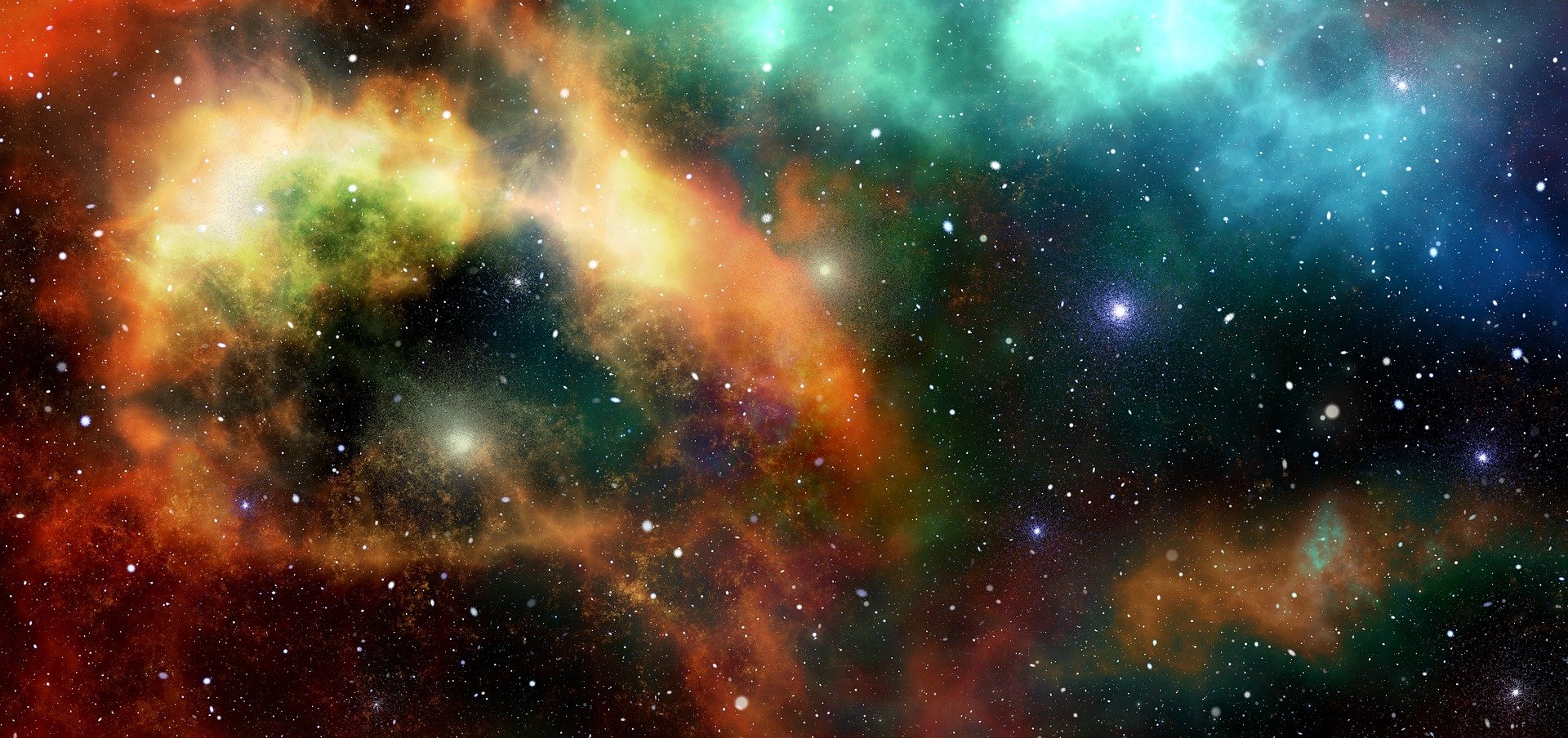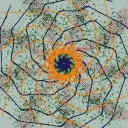New research puts age of universe at 26.7 billion years, nearly twice as old as previously believed::Our universe could be twice as old as current estimates, according to a new study that challenges the dominant cosmological model and sheds new light on the so-called “impossible early galaxy problem.”
deleted by creator
https://doi.org/10.1093/mnras/stad2032
I wasn’t able to read the actual paper since it’s behind a paywall, but it’s not exclusively a TL model. They say this in the abstract:
Deep space observations of the James Webb Space Telescope (JWST) have revealed that the structure and masses of very early Universe galaxies at high redshifts (z∼15), existing at ∼0.3 Gyr after the BigBang, may be as evolved as the galaxies in existence for ∼10 Gyr. The JWST findings are thus in strong tension with the ΛCDM cosmological model.
While tired light (TL) models have been shown to comply with the JWST angular galaxy size data, they cannot satisfactorily explain isotropy of the cosmic microwave background (CMB) observations or fit the supernovae distance modulus vs. redshift data well.
We present a model with covarying coupling constants (CCC), starting from the modified FLRW metric and resulting Einstein and Friedmann equations, and a CCC + TL hybrid model. They fit the Pantheon + data admirably, and the CCC + TL model is compliant with the JWST observations. […] One could infer the CCC model as an extension of the ΛCDM model with a dynamic cosmological constant.
Yeah, I’m not convinced, either. It seems like every couple of years, someone puts out an announcement that Lambda CDM is dead, other scientists take a look, and a much quieter announcement correcting their work gets put out.
The idea of evolving fundamental constants is pretty mind blowing to me. Is this a well based theory?
I mean, it’s a bold idea, but I don’t find it so shocking.
It’s well possible that what we call a “fundamental” constant is a variable that depends on other deeper variables. For instance, an earth-bound observer might consider acceleration in freefall to be a constant, but knowledge of universal gravitation tells us it’s a variable that depends on the masses of the objects involved and distance between them.
It makes sense that other ostensible “fundamental constants” are also dependent on the structure of the universe at any given point in space and time, but the limited window of our observations makes them appear as constants.
Interesting hypothesis – and totally outside my wheelhouse. I wonder how “tired light” sheds energy without violating the law of conservation of energy. Are they suggesting that our universe is not an isolated and closed system?
No, nothing like that. Everything is within our universe. He says he has a new way of describing light where it loses energy over time (something weird) and so it explains redshift. His idea says the redshift is wrong and the universe is older. He also says universal constants can change (something never observed before that would fundamentally change physics) and he can explain dark matter.
So, a lot of over-the-top claims. I’m pretty sure this guy isn’t toppling physics today as the bar is set high for whatever evidence he is sharing.
and he can explain dark matter.
* dark energy. They are not the same.
He says he has a new way of describing light where it loses energy over time (something weird) and so it explains redshift.
From what I understand, the main idea behind tired light isn’t particularly weird, it’s just that scattering could potentially lead to a redshift as well. The issue is that if you assume enough scattering to explain cosmological redshift you would also get some other effects, which are however not observed. This basically ruled out the original tired light theory by Zwicky from the beginning. The author of this paper seems to try to get around that by combining a smaller amount of “tired light” with time-varying couplings. Unfortunately the paper is behind a paywall and I can’t tell any more details.
He also says universal constants can change (something never observed before that would fundamentally change physics)
No, he says that coupling constants (not sure if that is what you mean by “universal constants” or not) can change, which is a generic consequence of the RG and has in fact been observed in nature (e.g. electron charge or strong coupling, to name just the most famous examples). From a QFT perspective, the cosmological constant is also a coupling, and several quantum gravity theories do in fact generically predict or suggest a time-varying cosmological constant. So this part by itself isn’t really that out there, nor that original for that matter. However, since I can’t access the paper I can’t judge whether the author’s way of varying Λ is reasonable or just a way to fit the data without any physical motivation, and I don’t really know what the article means by “he proposes a constant that accounts for the evolution of the coupling constants”.
and he can explain dark matter
That seems like a more grandiose claim to me, if accurate. Do you have a source for where the author claims that? Although he wouldn’t be the first to do so.
I’m pretty sure this guy isn’t toppling physics today as the bar is set high for whatever evidence he is sharing.
I think this can be said for a lot of popular science article with topics like this. However, in many cases the blame can lie more with the pop-sci journalists who are looking for a cool story and might over-interpret the author’s claims (I guess “physics toppled!!!11” sounds more interesting than “some guy suggests that some data might be fitted in a slightly different way”). Although in this case at least the age of the universe claim does seem to come from the author.
Isn’t dark matter just matter we can’t percieve? Rogue asteriods and the like? I admit its been a minute since I studied this stuff, but dark matter isn’t very special.
It used to be 13.7 billion years± a big margin that got narrowed down to 13.8± a smaller margin. Not seeing that changing unless there’s something seriously wrong with the previous research.
Narrowing it based on what we can measure doesn’t mean it’s correct.
The deeper we have stared into the universe the more our base understandings have challenged.
More likely it’s this guy’s research.
So insane man, love it. Hard to comprehend and just to think about.
Are there any constants that we actually know to have varied along the lifetime of the universe?
I don’t know if this counts as a constant, but I read that time moved something like 5 times slower in the early years of the universe.
It didn’t as time is relative just like space. There is no absolute standard of time to say “time moves faster”. Faster relative to what?
Somewhat. Based on my understanding of current astronomy news (I’m not an astronomer, just interested in the field) it’s not proven, but it’s not entirely disproven either. For instance, my understanding is that the Hubble constant (rate of expansion of the universe) is different if measured with the Cosmic Microwave Background (newer universe) compared to measuring redshirt of stars (older universe). Of course, it could be that one of the measurements made an assumption that’s not true, but i don’t think it’s out of the question that the false assumption ends up being that the constant stays the same over time…
Take what I say with a grain of salt, though. Hopefully an actual astronomer can pitch in
According to my understanding, yes. For example, it is usually assumed that there was a period of time shortly after inflation when matter was in a quark-gluon plasma, which would imply a larger strong coupling than today, since a small strong coupling is associated to confinement. There was also the electroweak-epoch, during which the electromagnetic and weak interactions were unified, and the corresponding gauge bosons were massless. The masses of the W and Z bosons can thus also be regarded as time-varying, as well as the electron charge. However, it should be noted that these changes are not all that significant on the cosmological scales under investigation here (e.g. the quark epoch ended at about 10-6 seconds after the big bang, which is much much less than the age of the universe, and it’s assumed that it still took quite a while before the first stars formed). A time-varying cosmological constant could potentially be much more relevant (and some quantum gravity theories even predict it), and I’ve heard some people suggesting it as a potential solution for the H0 tension. However, I unfortunately can’t access the paper and assess what precisely the author did there, and whether it is in any way similar to what I just mentioned.
Exited for more news
I’ve been watching progressively more complex videos on YouTube about spacetime over the past two years.
The more I understand of it, the more I realize I understand nothing of it.
It bends my mind so much, it’s like taking weed without any physical substances.
It makes the Total Perspective Vortex seem like a walk in the park.
I’m not surprised at all honestly
It sounds insane to say, but 13.4 or whatever felt way too young
“Feels” and “common sense”means little in science unless you have a mathematical or logical reason why you feel that way. I’ve seen far too many metaphysical theories try to be taken seriously to not point out that “feels” is useless, observation and math are what matter
And yet, some of the greatest scientific discoveries of all time were made based on people’s feelings and intuition. Fucking shocker I know right. I’ll bet you’re fun at parties.
Despite agreeing with your initial position, you sound like an asshole at parties and outside of them, too. If you need to posture and belittle to support your position, then you have no business trying to argue it in the first place.
Intuition can be a powerful compass to guide us to truths we haven’t yet considered, bubbling up from our subconscious that contains the bulk of our brain’s processing power. But the other commenter is right, it’s not infallible. That same intuition in different people came up with all of science’s knowledge (both the stuff that is currently believed and the stuff that has since been disproven) as well as all of religion’s knowledge (assuming there isn’t any higher being involved, which my intuition says there isn’t but others’ have come to different conclusions).
deleted by creator
Okay, but the universe and our galaxy is really friggin’ big. There very well could be other life out there, but is it intelligent enough to build spaceships? Perhaps. Has it figured out how to traverse the galaxy in a reasonable amount of time? I have doubts about that. Then what’s the chance it would came across our own solar system? Pretty slim.
I like the hypothesis that any civilization that gets close to entering a space based civilization ultimately destroys itself like we are currently doing even though we basically have a solution in the form of humanistic philosophy and nuclear power for clean energy
Double that is still weird. If the heat death of the universe is 10^100 years out or more, we’re incredibly early whether it’s 13 billion or 26 billion. That leads to one possible explanation for the Fermi paradox, the universe will have countless civilizations rise and fall over the eons, we’re just one of the first, if not the first.
Granted that’s just a thought that came to mind under the influence of an unexpectedly strong edible rather than actual scientific research, but it’s still neat.
Well, it would be most logical for it to have existed forever.
For the last 13.7 billion years, we haven’t observed matter/energy just popping into existence. In all that time, nothing was truly created from scratch.
So, it would be quite the exception to the rule, if that was different beforehand…
A lot of theories come along, few survive scrutiny of people who know what they’re doing
A sincere thank you for a fascinating, quality post in Technology instead of the usual Threads/Twitter/Reddit posts.









